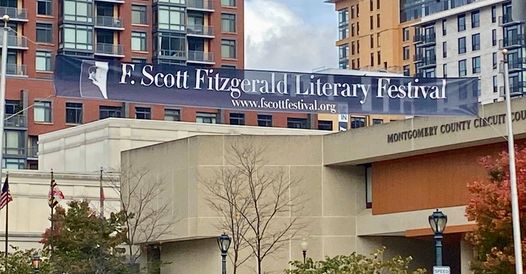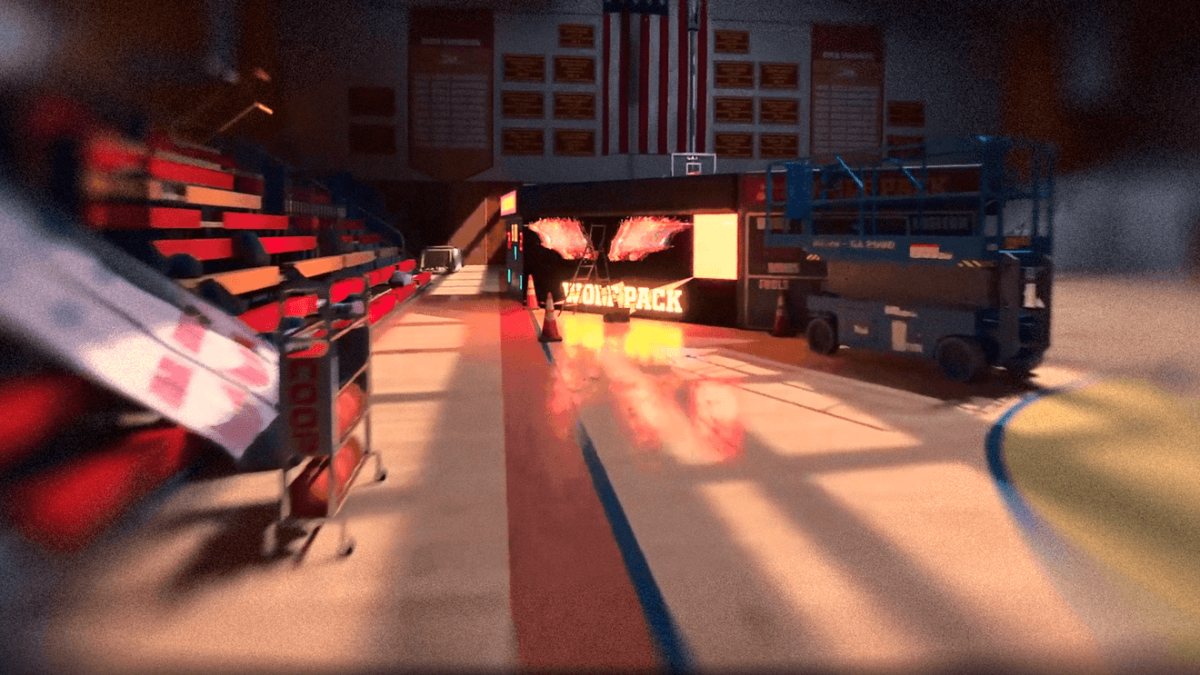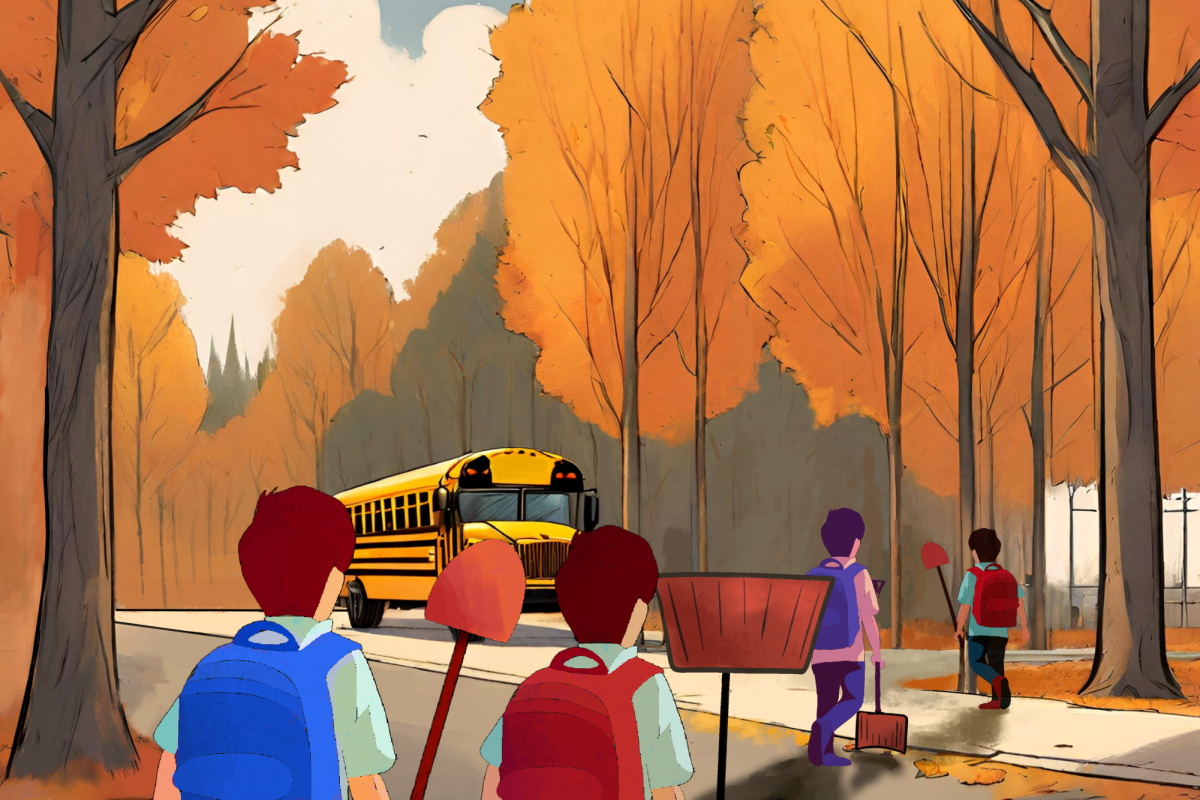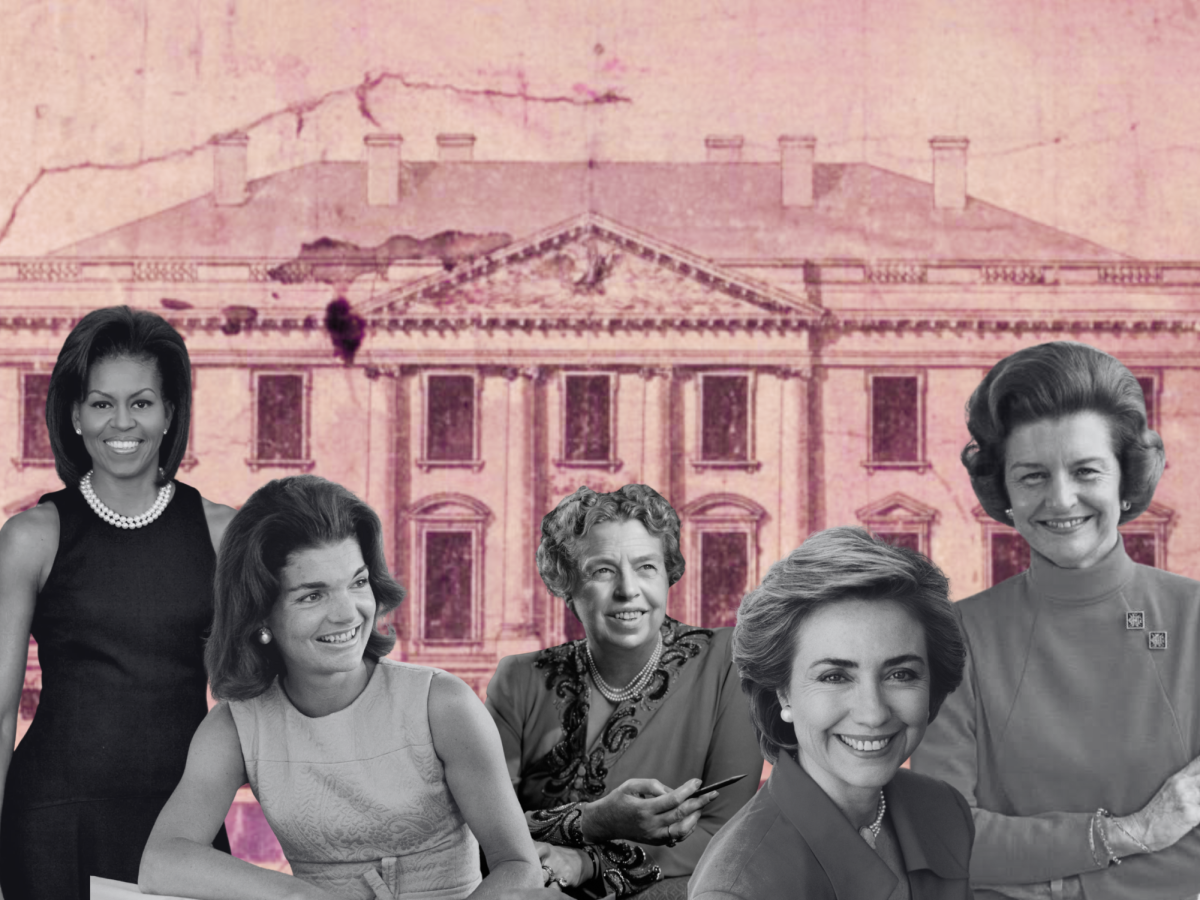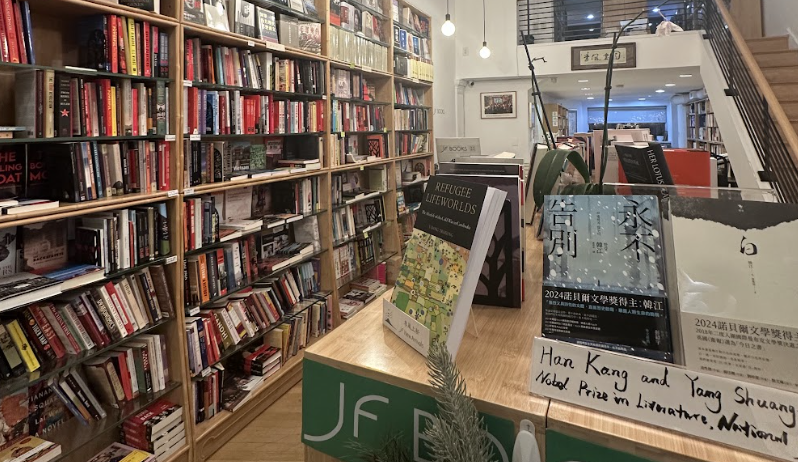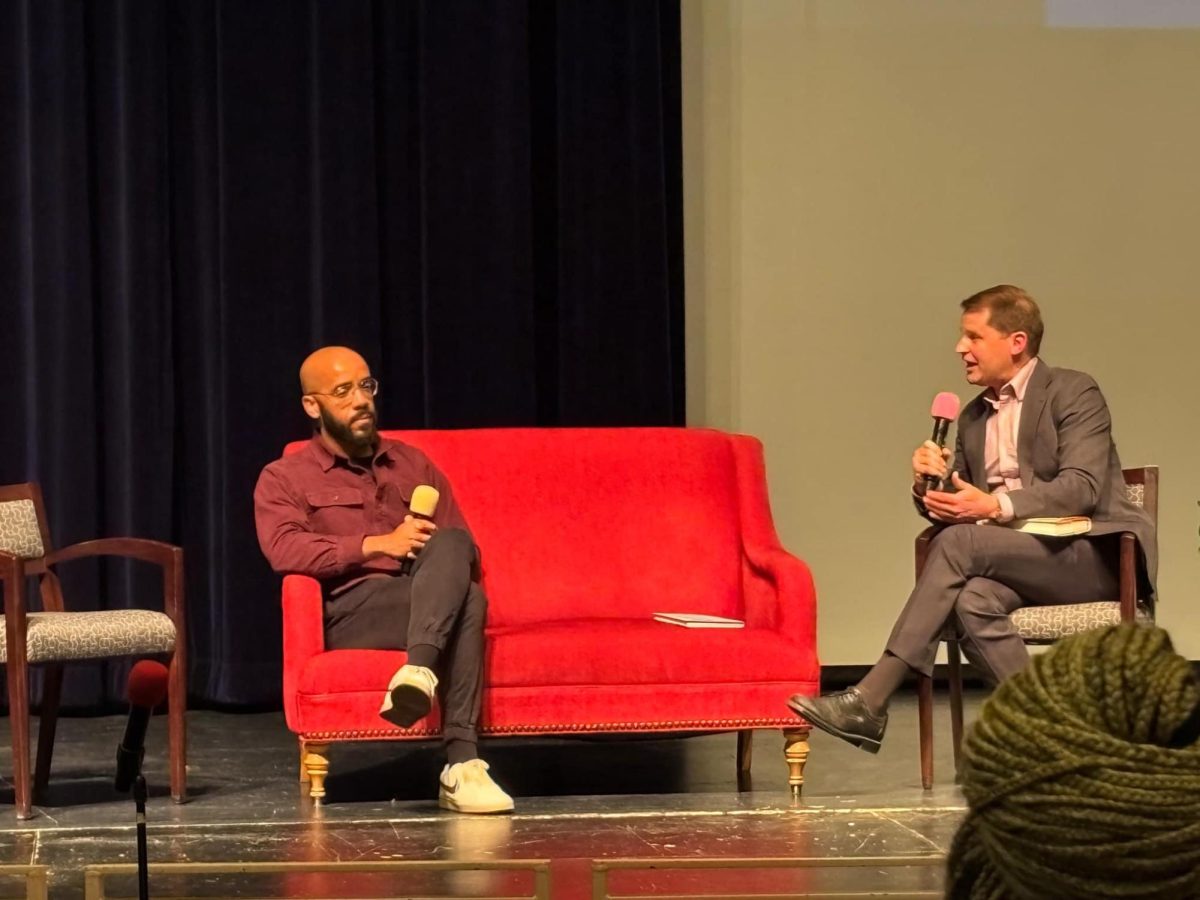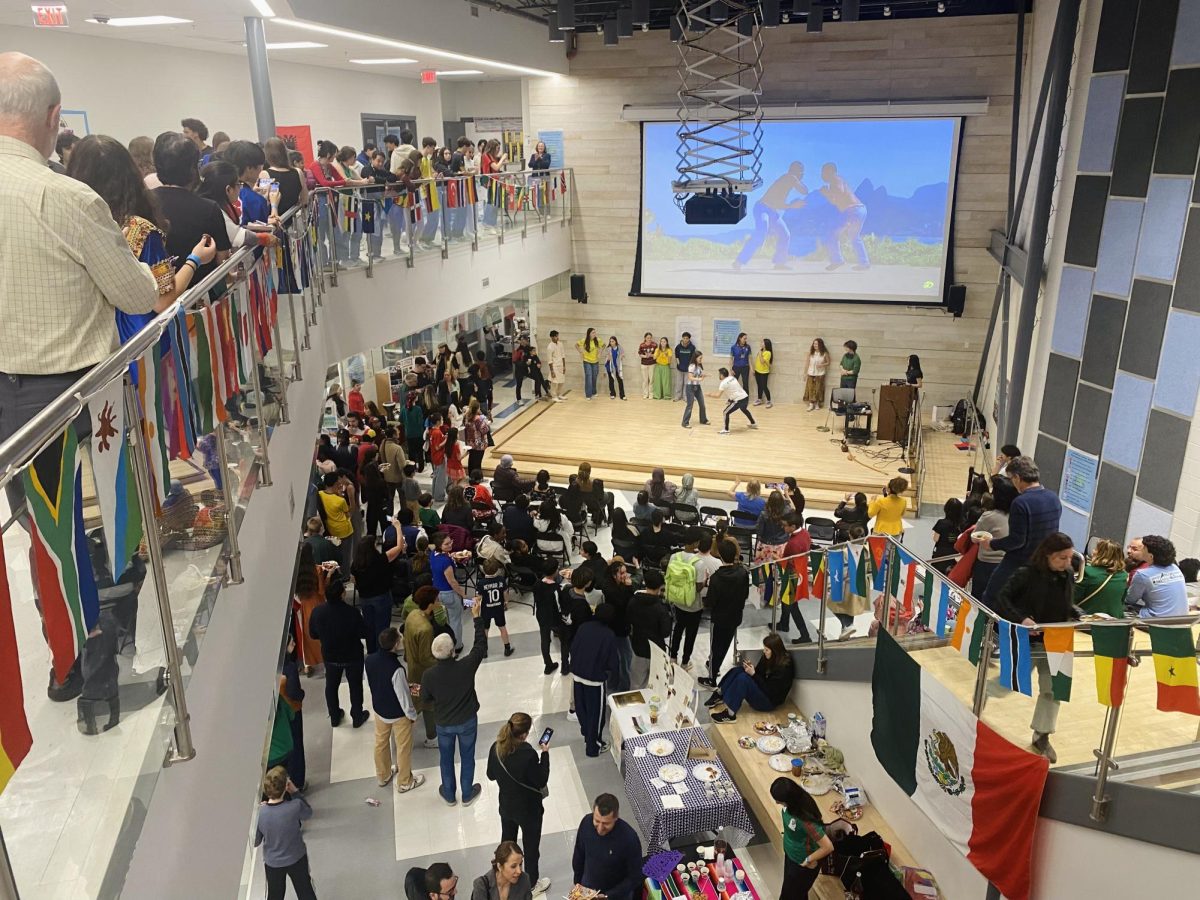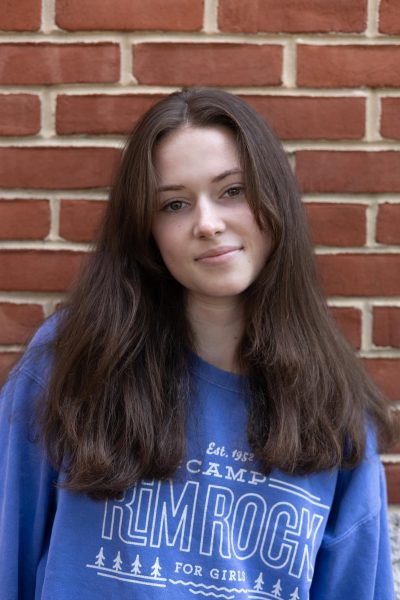As they sat at their desks in Matthew Bruneel’s Honors English 10 class, current juniors Naomi Goldstein, Dresden Benke and Lucas Yamamoto had no idea that the speculative fiction short story they’d been assigned to write would grant them any recognition besides a potential good grade.
Every year, the F. Scott Fitzgerald Literary Conference sponsors a short fiction story contest for young writers in Montgomery County. Students submit their creations in June and receive the judges’ commentary in early fall. The first-place prize is a $250 check and an invitation to speak about their story at the 26th annual F. Scott Fitzgerald Literary Festival. The two runner-ups receive prizes of $100 each and an invitation to speak at the festival.
At the end of the 2022-2023 school year, Bruneel’s 10th-grade English students wrote a speculative fiction short story: a story that detaches from ordinary reality. The class analyzed various science fiction stories, like “The Paper Menagerie” by Ken Liu and “It’s a Good Life” by Jerome Bixby, in preparation for writing a short story of their own.
After noticing promotional posters around the school building and hearing about the contest from fellow teachers, Bruneel opted to involve his Honors English 10 classes by requiring his students to submit their stories.
He also wanted to provide his students an opportunity to share their work with a larger community, he said.
“I wanted to give my students an authentic audience for their writing because I felt sort of siloed with the writing that we’re doing,” Bruneel said. “I had no idea we would get such an amazing response.”
The contest’s top three finalists were all Whitman students in Bruneel’s Honors English 10 class, with Yamamoto receiving first place, Benke receiving second and Goldstein receiving third.
Though their final products differed, Yamamoto and Goldstein’s writing processes were similar. Initially, both writers wrote stories they felt weren’t good enough before scrapping them. After days of brainstorming new ideas, they ran with their story ideas and wrote them in a single attempt.
Inspired by Stanley Kubrick’s “2001: A Space Odyssey” and Hideaki Anno’s “Neon Genesis Evangelion,” Yamamoto told his story, “Chatbot Blues,” from the perspective of a newly sentient AI. Rather than AI being the antagonist, a common trope, Yamamoto depicted Marvin the Chatbot as a complex and poignant main character. As Marvin discovered his new thoughts and emotions aboard a long-haul spaceship ferrying cryo-sleeping human beings, Yamamoto’s story dove into the harsh realities of being human.
Yamamoto credits the unique informal writing style of novelist Andy Weir as a significant inspiration for his writing. Similar to Weir, Yamamoto tended to focus on the overall essence of his story rather than meticulous details.
“I focus more on concepts, not grammatical precision,” Yamamoto said. “I have a couple dozen run-on sentences, and I never properly edited my paper. I just tried to focus more on the big picture over actually making it a well-written story.”
In their first-person short story “Womankind,” Goldstein explored modern gender ideas through a speculative society where men and women were physically separated by a wall, with each gender independently directing its distinct world. On the women’s side, the story’s main character realized they didn’t fit in their world and decided to find out where they belonged.
While brainstorming, Goldstein contemplated what personally carries meaning for them. They came across the topic of gender and how it’s been an important factor in their life. As Goldstein touched on relevant themes like the reality of gender envy and the impact of gender identity, they connected their speculative world with the real world, where transgender individuals also receive scathing backlash and often experience imposter syndrome because of their gender.
Goldstein believes their ability to personify each character makes their writing special.
“I think my writing style is unique not only from that of others but also between everything I write,” Goldstein said. “I really try to get in the mind of the character and write using a style that represents my individual characters.”
In addition to the sums of money the finalists received, the conference invited them to read aloud and speak briefly about their short stories at the festival in Oct.2023, held in the Montgomery College Theater Arts building. Both Goldstein and Yamamoto described the event’s atmosphere as supportive and calm, with an incredibly accepting and appreciative audience. While reading their story, Goldstein delved into their character’s head, wanting to provide the audience, and even themself, with a palpable and expressive performance. Yamamoto’s ability to make the crowd laugh during his story pleased him, as he hadn’t initially seen those scenes as humorous, he said.
Both finalists felt the event was more fulfilling than expected, as they realized their ability to impact people’s thoughts and emotions through their writing and verbal renditions of their stories.
Besides the various networking opportunities and recognition these writers received, they also gained more confidence in their writing abilities.
Yamamoto and Goldstein said they greatly benefitted from entering the contest and encourage other students to do the same when the next opportunity rolls around. They believe there is much to gain from participating in student writing competitions, given what it did for their writing abilities and connections within the writing community.
Yamamoto urges fellow students to step outside of their comfort zones when entering the contest.
“Why not?” he said. “Challenge yourself to express yourself the best way you can.”
The contest’s lack of an entrance fee offers all students a harmless chance to put their work out into the world beyond the walls of a school and the eyes of a teacher. The ultimate goal of the competition is to expand and appreciate the writing abilities of students, regardless of the final results.
Bruneel greatly appreciates how rewarding this competition was for his former students and what it will do for future generations of writers.
“It’s a feather in the cap of all the students, who get to say, ‘I’m actually recognized for my work, what I’m writing matters, and I’ve got something to say that other people want to read,’” he said. “It remains a confidence boost and an encouragement for students to keep writing.”
Dresden Benke is a feature writer for the Black & White.



